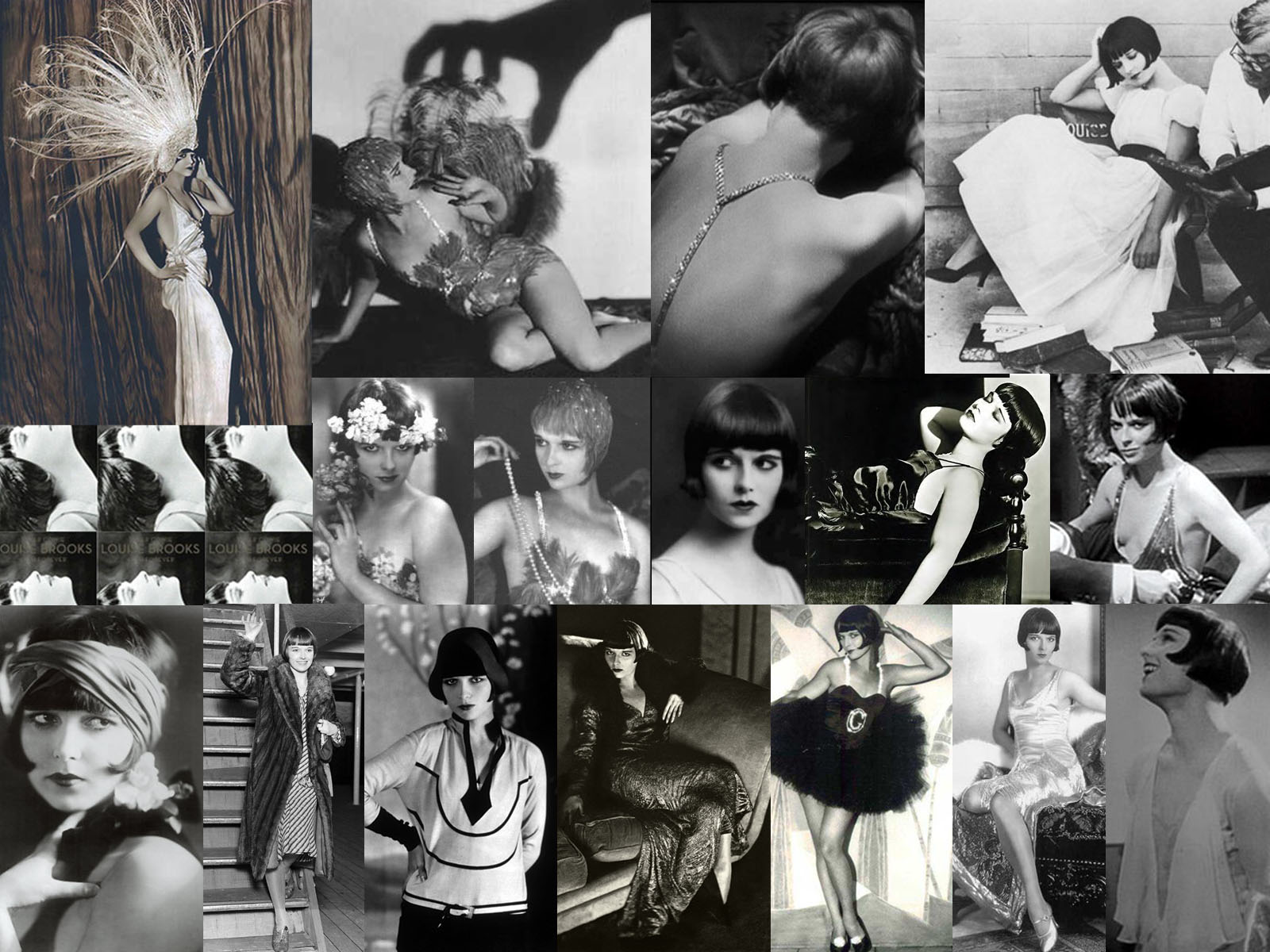 My favorite silent film star (and inspiration for Katie Holmes's really ill-fitting haircut last year) Louise Brooks is what I consider to be the archetypal example of a flapper. Born Mary Louise Brooks in midwestern Cherryvale, Kansas in 1906, "Brooksie" (as her family friends called her) began studying dance at a young age before turning professional in 1922 and moving to New York. After dancing with different companies, Brooks joined the famous Ziegfeld Follies before pursuing a career in film.
My favorite silent film star (and inspiration for Katie Holmes's really ill-fitting haircut last year) Louise Brooks is what I consider to be the archetypal example of a flapper. Born Mary Louise Brooks in midwestern Cherryvale, Kansas in 1906, "Brooksie" (as her family friends called her) began studying dance at a young age before turning professional in 1922 and moving to New York. After dancing with different companies, Brooks joined the famous Ziegfeld Follies before pursuing a career in film.She first made a splash onscreen as the vampy Marie in Howard Hawks's "A Girl in Every Port" in 1928. She followed up that film with "Beggars for Life" (also 1928) where she portrayed Nancy, an abused country girl who is on-the-run. Both these films established Louise Brooks as a talented actress, the latter film often being described the best film of her career. Other notable films include: "Diary of a Lost Girl," "Prix de Beauté," "Rolled Stockings," and "The Canary Murder Case." Arguably her most famous role was as Lulu in "Pandora's Box" (1929), a role that bore remarkable similarities to her own life. Despite her popularity and talent, Louise had a strong dislike of anything to do with Hollywood, so she would make only 24 films throughout her life. She eventually left America for Europe, appearing in German films with great reception, though she still felt foreign cinema was influenced by the repressive rules of the Hollywood system. She ended her acting career at its peak in 1938; her remaining years were spent travelling, writing, painting, and reading.
Gradually, as her interest in acting waned, her own status as a legitimate actress was eclipsed by her role as a fashion icon and personality. She became best-known for her signature bob haircut, a page boy-ish look that epitomized the flapper. She considered herself a "modern" woman, sexually liberated and independent. She refused to accept the oppressed position for women in society, often causing controversy due to her independent nature.